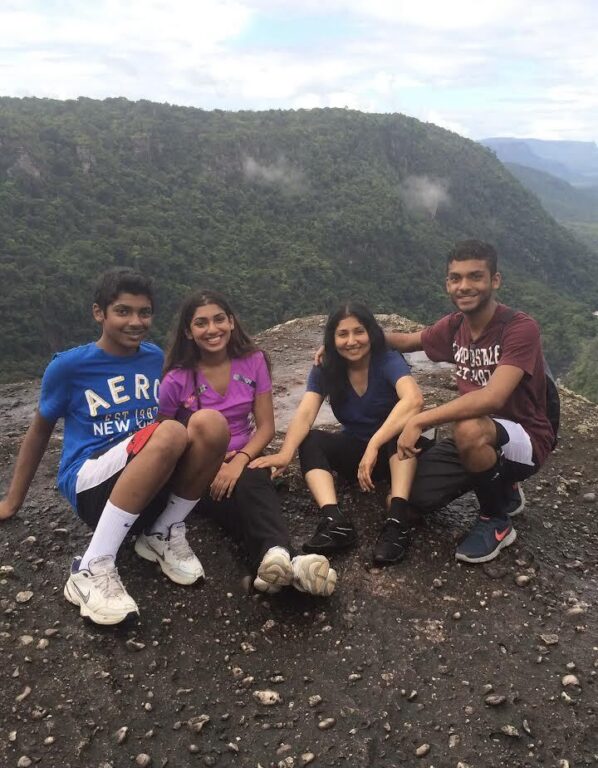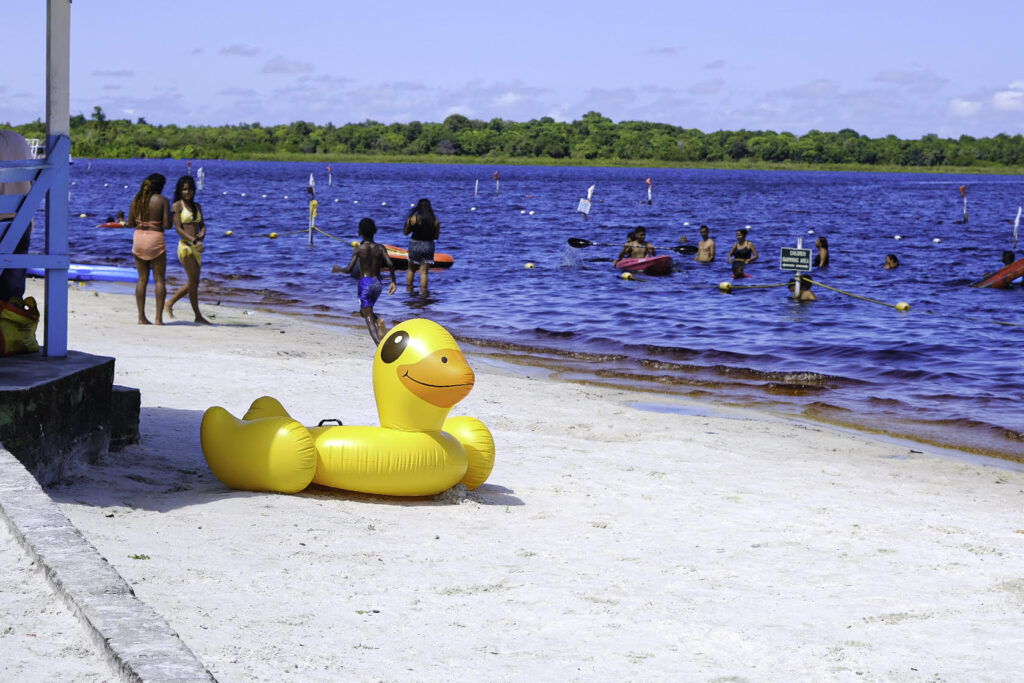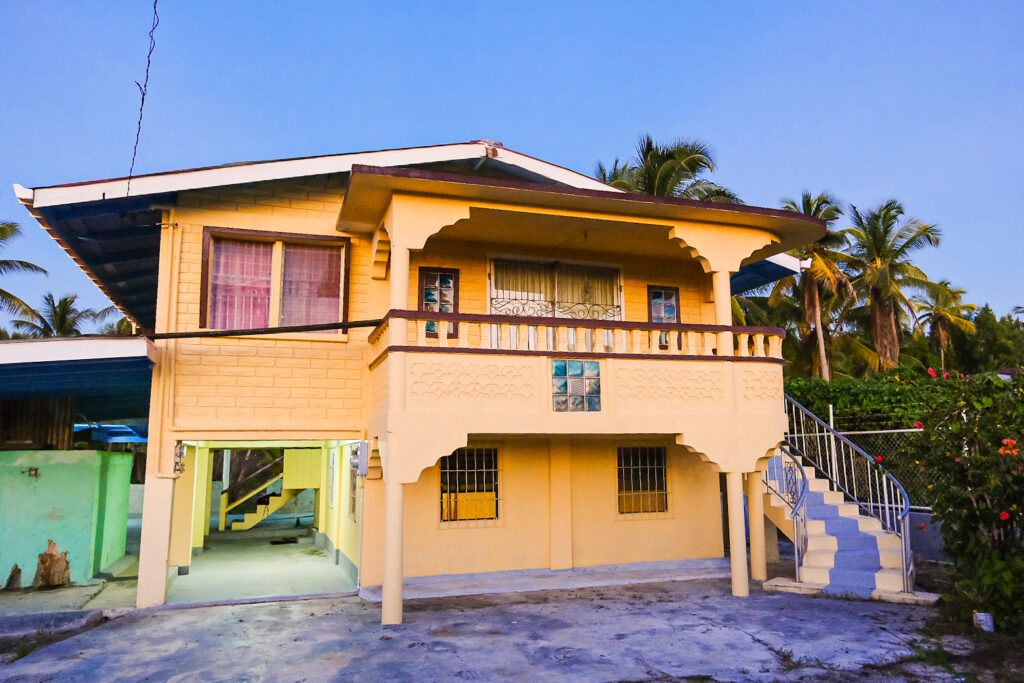
On Dec. 3, 2023, Venezuelans allegedly approved a referendum to annex and claim sovereignty over the oil-rich region of Essequibo from neighboring Guyana, inflaming a territorial dispute spanning nearly two centuries. Once divided by colonial powers, Essequibo has belonged to Guyana since 1899 as a result of international arbitration.

A vast swath of land encompassing two-thirds of Guyana, Essequibo is teeming with biodiversity. It is a multicultural haven where several ethnic groups intermingle and live within its villages. My maternal great-grandparents left India for Guyana and settled in Essequibo. My mother’s family is part of the first generation of Indo Guyanese citizens born and raised on the Essequibo coast.
[Read Related: Introducing Vaksana: Guyana’s First Sustainable Women’s Retreat]
Growing up, I heard tales of magnificent Essequibo lakes and hot springs, beaches lined with fresh coconut and guava trees and lush, fertile rainforest cooled by coastal winds. There was never any inclination or resonance between Essequibo and Venezuela, as the people fully immersed themselves in Guyanese culture. I was fortunate to visit the region in 2015 and was taken aback by its beauty and way of life. It is both nerve-wracking and infuriating for my family, alongside other Guyanese and their diaspora, to know that Venezuela is unlawfully attempting to seize a region that was legally declared Guyana’s.
Led by President Nicholas Maduro, who happens to be up for re-election in 2024, the Venezuelan government rejects any current boundary settlements, contending that Americans and Europeans conspired to cheat their country out of Essequibo’s land in 1899, which was originally within Venezuela’s borders when occupied by Spain. In addition, they believe that the 1966 Geneva Agreement between Venezuela, Great Britain and its colony of British Guiana (Guyana pre-independence), to determine if the act of 1899 is null and void, invalidates the arbitration.

It is imperative to note that the 1966 Geneva Agreement is only a political framework aimed at fostering a diplomatic solution, whereas the 1899 Arbitration Act is a legally binding contract. For a frustrated Guyana, this theoretically reopens the border dispute previously considered closed by agreeing to create a Mixed Commission seeking a solution for Venezuela’s contention.
While Venezuela’s use of this temporary agreement is their primary documentation of negotiation; with several points that harm their stance. For example, Venezuela recognized Guyana’s independence from Britain and validated its independence without requiring a solution to the border dispute first. Currently, Britain’s stance on the dispute reaffirms the 1899 arbitration and recognizes Essequibo as a Guyanese territory. The two countries have been locked in UN-backed bilateral talks for decades, to no avail. This latest provocation renews the need for an immediate legal stance within the international community that permanently ends this one-sided debate.

Venezuela has resorted to threats and acts of intimidation in a desperate attempt to force Guyana to surrender Essequibo and give in to their false claims. Despite evidence of rigged elections and low turnout, the theatrics promoting this referendum distract from the dire socioeconomic situation ordinary Venezuelans face daily. Inflammatory rhetoric used by the Maduro government to stir patriotism deflects from their despotic actions that raise questions about their legitimacy. The Arbitral Act of 1899 must be supported since it was maintained as legally-binding before 1966 by international parties, including Venezuela.
No formal border with Venezuela was ever established with Britain when the British first arrived in South America. Since the creation of the British Guiana colony, Indigenous Amerindian tribes in Essequibo’s dense rainforest and open savannah, as well as Indo and Afro Guyanese born up and down the Essequibo coast like my family, were born as Guyanese citizens. They proudly identify as belonging to Guyana, not Venezuela. The majority are descendants of Indian and African indentured laborers and slaves brought during the British occupation. They speak English with Guyanese accents, eat Guyanese food and participate in the unique blend of Guyanese activities stemming from its history of multiculturalism.

Venezuela’s oil industry has plummeted, but ExxonMobil’s discovery of billions of crude oil deposits off the Essequibo coast has largely expanded Guyana’s economy. Combined with the extensive mineral mining opportunities offered, the fight to claim Essequibo’s resources, which could significantly reshape a nation, is the unequivocal catalyst for reigniting the debate. However, the Venezuelan people could re-evaluate their choice of leaders if they want actual economic change. While defending their borders, Guyana should also focus on not succumbing to the “resource curse” by utilizing profits and economic revenues to directly bolster the socioeconomic status of all Guyanese.
Regional instability is a concern for many allies and international organizations. Although military confrontation in Essequibo seems unlikely, Russia’s invasion of Ukraine, and Israel’s siege of Palestine in 2023, have increased global conflict tensions. Two days before the referendum, The International Court of Justice ruled that Venezuela should, “refrain from taking any action that would modify the situation that currently prevails.”

Neighboring Brazil increased its military presence along the Guyanese border, while the United States, home to Exxon Mobil, conducted military exercises with the Guyana Defense Force. Brazilian President Luiz Inacio Lula da Silva facilitated a meeting between the two nations alongside the Caribbean Community (CARICOM), a United Nations Under-Secretary and the Community of Latin American and Caribbean States (CELAC) on December 14th in Saint Vincent and the Grenadines. While no territorial solution was determined, the two countries tentatively agreed to refrain from using threats and/or force against one another. A report is expected within three months from a joint commission of both interior ministers addressing the dispute. A final decision from the International Court of Justice is also expected.
Reactionary measures such as creating maps with Essequibo as a Venezuelan state, offering identification to Essequibo residents in border towns and ordering Venezuelan agencies to drill for oil will not be tolerated. Guyanese citizens and their diaspora are speaking up, coining phrases such as “Essequibo is we own” and exclaiming that “not a blade of grass” of Essequibo will ever belong to Venezuela.
Essequibo is legally and culturally Guyana’s and international law must uphold the rights of Guyanese sovereignty. The Maduro administration needs to focus on bettering their own country and population instead of trying to steal Guyana’s land and resources.
The Essequibo debate is a result of colonial greed, and foreign interests still influence it. Nonetheless, we need to revisit history by enshrining the results of the Arbitral Act of 1899 as international law. Guyanese people should not feel our home is under attack, and we are united in our fight to keep Essequibo ours.




